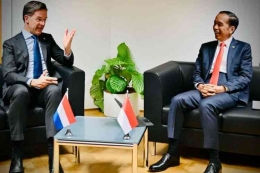A Step Towards Full Recognition and Reconciliation
Dutch Prime Minister Mark Rutte has taken a significant step by officially recognizing Indonesia's independence day on August 17, 1945. This historic acknowledgment marks a shift in the Netherlands' perspective, as they previously only recognized December 27, 1949, as the official day of Indonesia's independence. The latter date was the outcome of the Round Table Conference and the subsequent transfer of sovereignty from the Netherlands to the Republic of Indonesia. However, in 2005, the Netherlands made a political and moral acceptance that Indonesia had, in fact, gained independence in 1945.
A Long-Awaited Recognition
The acknowledgement by Prime Minister Rutte comes in response to the request made by Corinne Ellemeet, a member of parliament representing GroenLink party. Ellemeet highlighted the significance of August 17 as the true beginning of Indonesia's independence. Rutte stated during a debate on decolonization studies in the Dutch Parliament on Wednesday, June 14, 2023, that the king has been sending congratulatory telegrams to Indonesia every year on August 17. This act itself reflects the recognition of the importance of this date.
Furthermore, Prime Minister Rutte has expressed his intention to engage in further discussions with the President of Indonesia. This diplomatic step aims to strengthen the ties between the two nations and foster a deeper understanding of their shared history.
Advocacy for Legal Consequences
Jeffry Pondaag, the Chairman of the Dutch Honor Debt Committee (KUKB), has been a long-standing advocate for the recognition of Indonesia's independence day. Pondaag believes that this acknowledgment should carry legal consequences. He asserts that the Netherlands committed war crimes during the war of independence by attacking another country's territory. Pondaag even proposes the removal of the term "Dutch East Indies" from all books, emphasizing the need for a comprehensive reevaluation of historical narratives.
Additionally, Pondaag argues that the 4.5 billion guilders that Indonesia paid to the Netherlands should be returned, along with an interest amounting to 24 billion. However, it is important to note that the Prime Minister's spokesperson has clarified that there will be no legal changes resulting from this acknowledgment. Nevertheless, the recognition itself represents a crucial step towards reconciliation and understanding between the two nations.
A Path to Reconciliation
The acknowledgment of Indonesia's independence day by Prime Minister Rutte demonstrates the Netherlands' evolving perspective on their shared history. It signifies a commitment to acknowledging past injustices and fostering a path towards reconciliation. While legal changes may not be forthcoming, the symbolic significance of this recognition should not be underestimated.
By addressing the historical complexities and engaging in open discussions, both countries can deepen their understanding and build stronger diplomatic ties. Prime Minister Rutte's decision paves the way for further dialogue and cooperation, allowing the Netherlands and Indonesia to forge a mutually respectful relationship based on shared values and a recognition of their intertwined past.
Baca konten-konten menarik Kompasiana langsung dari smartphone kamu. Follow channel WhatsApp Kompasiana sekarang di sini: https://whatsapp.com/channel/0029VaYjYaL4Spk7WflFYJ2H







